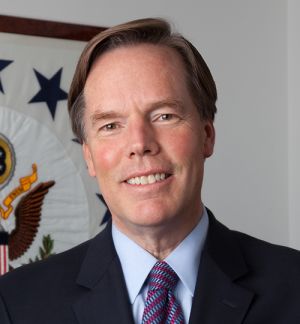With the imminent and long-awaited collapse of the brutal Khadafy regime, President Obama’s careful, persistent, and oft-criticized policy in Libya has worked.
When the protests began in Libya last winter, I shared the widespread doubts about the involvement of US military forces in a country where we had no obvious vital interests. After the Arab League invited NATO to intervene in the internal affairs of a member state, however, followed by the UN Security Council’s blessing of such an action and the prospect of a real bloodbath in Benghazi, President Obama was right to agree to commit NATO to support the rebel alliance.
NATO’s Libya venture took much longer to succeed than the administration expected. Until 10 days ago, many, including myself, worried about a stalemate for NATO forces in Libya. And the president was subjected to an unusual, highly partisan, and unreasonable assault by Congress on his constitutional right to commit US forces in the first place. Yet Obama persisted, and it has paid off.
It is only right, then, to applaud his steadfastness and patience as the rebel forces achieved their spectacular lightning strike on Khadafy - first in Zawiya and then Tripoli - over the last few days.
There can be no doubt that the United States made a critical difference in the more effective NATO combat operations over the last few weeks. While the National Transitional Council and the people’s army deserve the largest measure of credit for bringing down the Khadafy regime, the United States and its NATO allies made a unique and invaluable contribution that was critical to the success we are witnessing.
To continue reading, click here.
Burns, Nicholas. “Victory for US leadership.” The Boston Globe, August 23, 2011


